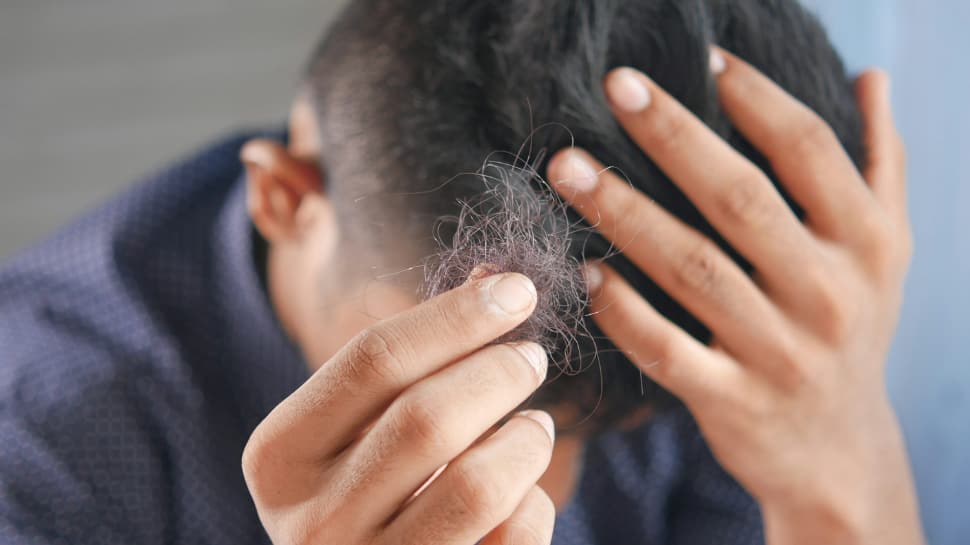Experts warn that social media stress is fueling a surge in hair loss among teenagers. Constant comparisons, pressure to look perfect, and excessive grooming for photos create mental strain, triggering stress-induced hair fall. Doctors advise balanced screen time, self-acceptance, and healthy habits to combat this growing concern among youth. Here are key insights shared by Dr. B.L. Jangid, Dermatologist and Hair Transplant Surgeon at SkinQure Clinic.
1. How has the rise of social media platforms impacted the way young people view their appearance, especially their hair?
Social media has made young people far more conscious about how they look. Every day, they see influencers with perfect hair, often edited and filtered images posted by them on platforms like Instagram, Snapchat that can set unrealistic beauty standards. Naturally, when their hair doesn’t match up, it becomes a major source of stress.
2. Are we seeing an increase in teenage or early 20s patients seeking consultations for hair loss? If yes, what’s driving this trend?
The main reason is the pressure to look good all the time, be it for selfies, reels, or even video calls. The trend is driven by stress, unhealthy lifestyle habits, nutritional deficiencies and the growing obsession with being “camera-ready” all the time.
3. What are some common myths about hair loss being spread through social media?
There are many. One common myth is that wearing caps or helmets causes baldness; it doesn’t. Another issue is that applying lots of oil or onion juice can regrow hair, but that’s not how biology works. Genetics and hormones are the real reasons behind most male pattern baldness
4. What would you advise young people to do before jumping into hair transplant procedures?
Slow down, and let the hair expert determine if you’re a suitable candidate for hair transplant or not. Because sometimes hair fall is just stress or nutrition-related and can be reversed with simple treatments. If it is genetic, start medical therapy and stabilise it, hair transplant should be the last step, not the first impulse. So, if anyone is dealing with hair loss issues, meet a dermatologist or hair specialist who can diagnose the real cause behind your hair fall and can suggest necessary treatment tailored to your needs.
Baldness in young adults, especially in the early 20s, can be super stressful! It’s like, you’re supposed to be having the time of your life, and instead, you’re worried about losing your locks. There are a few potential reasons for this: Dr. Manisha Hanamshet, CEO and Founder of NAYA Skin Clinic, debunks common myths about hair loss that are often spread through social media.
1. Myth: Hair loss only affects older people
Reality: Hair loss can affect anyone, regardless of age. Genetics, stress, and medical conditions can cause hair loss in young people too.
2. Myth: Wearing hats or caps causes hair loss.
Reality: There’s no scientific evidence to support this. Hair loss is usually caused by genetics, hormonal imbalances, or medical conditions.
3. Myth: Frequent shampooing causes hair loss.
Reality: Shampooing itself doesn’t cause hair loss, but excessive heat styling or harsh chemical treatments can damage hair.
4. Myth: Hair loss is only genetic.
Reality: While genetics play a significant role, other factors like stress, hormonal imbalances, and certain medical conditions can also contribute to hair loss.
Before undergoing a hair transplant, several precautions should be taken to ensure a successful procedure and minimize potential risks. Here are some key considerations:
1. Choose a Qualified Surgeon
– Experience and Credentials: Ensure the surgeon is experienced in performing hair transplants and has the necessary qualifications.
– Before-and-After Photos: Review the surgeon’s portfolio to assess the quality of their work.
2. Understand the Procedure
– Consultation: Have a detailed consultation to understand the process, expected outcomes, and potential risks.
– Realistic Expectations: Ensure you have realistic expectations about the results.
3. Pre-Procedure Instructions
– Medications: Inform your surgeon about any medications you’re taking, especially blood thinners, which may need to be stopped before the procedure.
– Smoking and Alcohol: Avoid smoking and alcohol for a period before and after the surgery, as they can affect healing.
– Hair Care: Follow any specific hair care instructions, such as avoiding certain hair products.
4. Health Considerations
– Medical History: Disclose your full medical history, including any conditions that might affect healing or the procedure.
– Scalp Health: Ensure your scalp is healthy and free from infections or other conditions that could affect the transplant.

